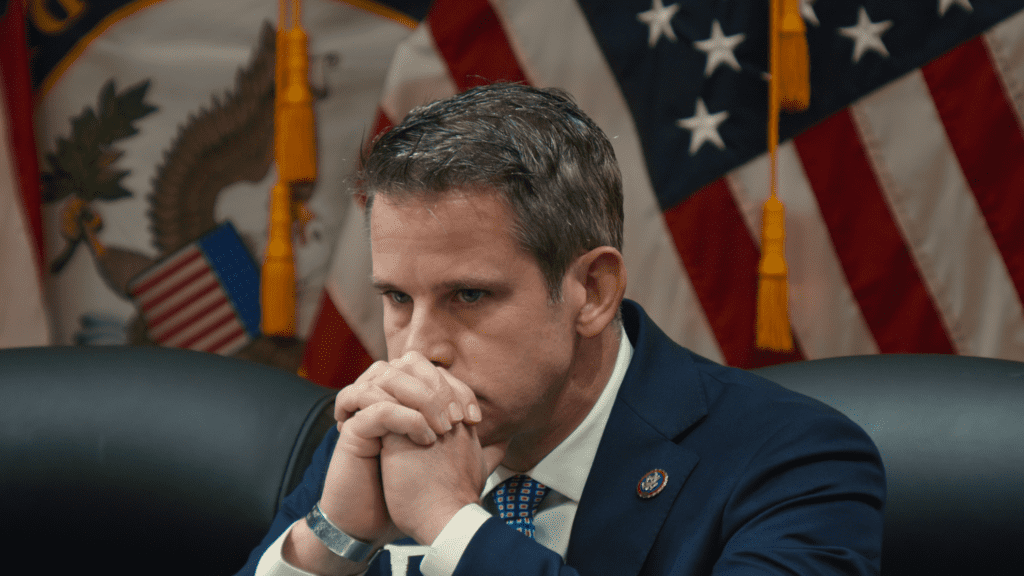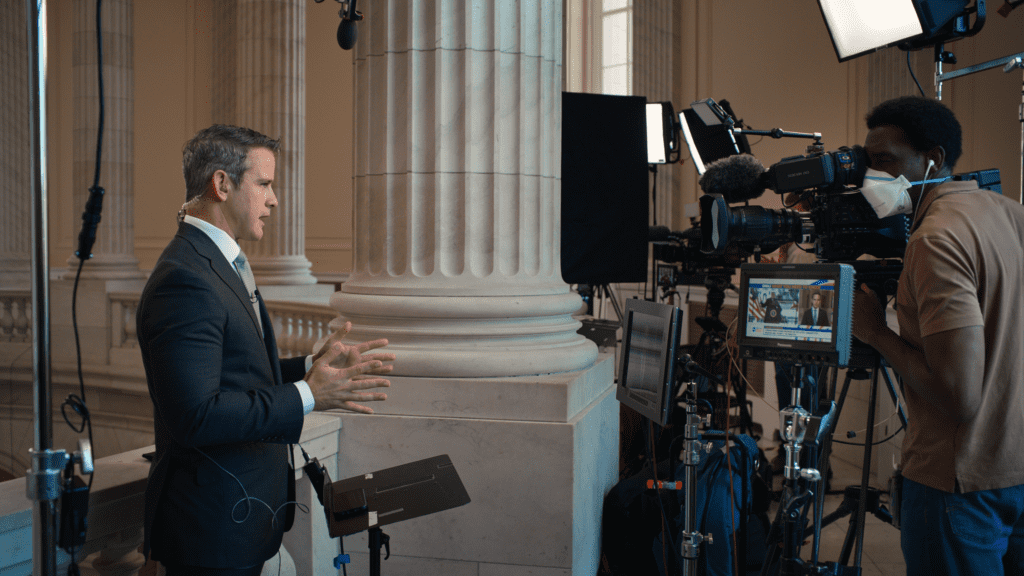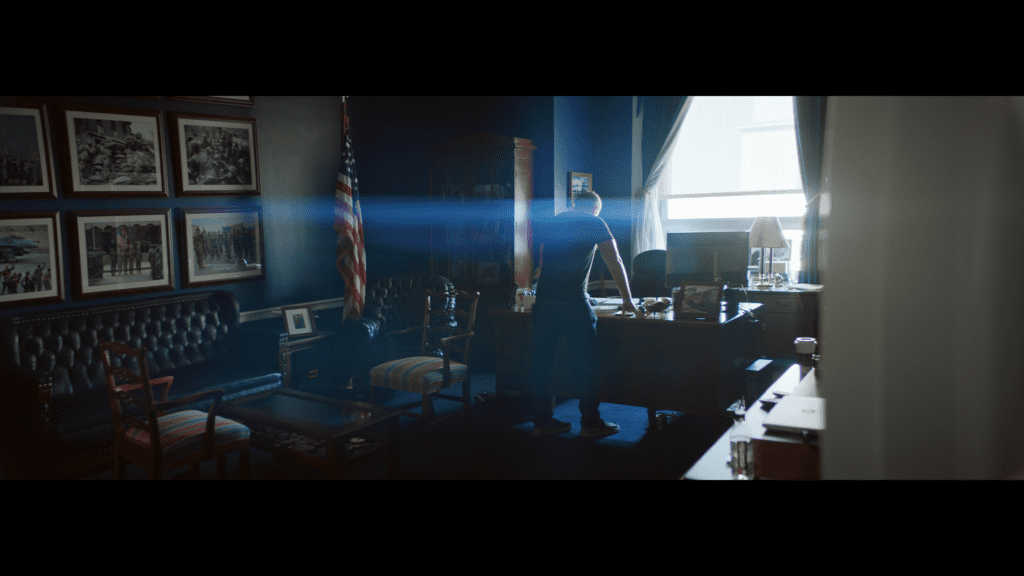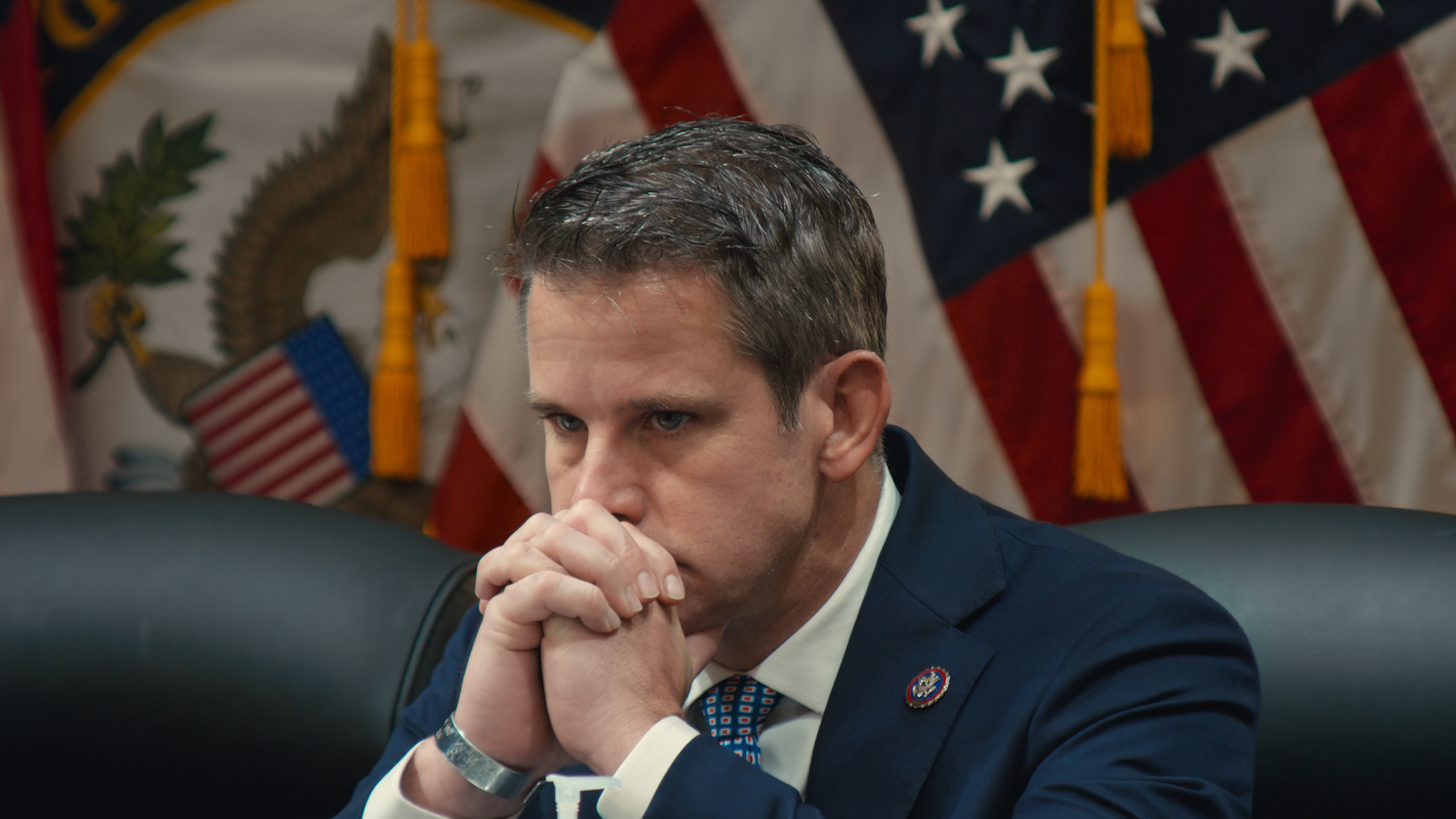The Last Republican is a Fair, Balanced Portrayal of Adam Kinzinger’s Final Days (Which is Why It’s Destined to Fail)
The Last Republican | Adam Manery
As I hit “publish” on this article shortly after the certification of votes for the 2024 Presidential election, The Last Republican could not be more relevant in a world where polarization continues to “trump” discourse. Directed by Steve Pink, known for his work on Hot Tub Time Machine and Accepted, The Last Republican follows Adam Kinzinger, a former Republican Representative for Illinois and lieutenant colonel in the Air National Guard, as he navigates the fallout from his decision to break ranks with his party.
Pink, a self-proclaimed communist and veteran comedy director, brings a surprisingly measured tone to the documentary. His interviews with Kinzinger, interspersed with moments of levity and camaraderie, avoid the traps of sensationalism or ideological bias. Instead, Pink allows Kinzinger to speak for himself, creating a space for dialogue rather than diatribe. This restraint, however, is unlikely to engage the very audience the film hopes to reach. In a cultural climate that thrives on outrage and division, The Last Republican is a small part of the medicine the nation needs but refuses to swallow.

As someone who taught American politics in England, I find the film particularly resonant. During my tenure, we explored concepts like bipartisanship, checks and balances, and federalism—ideas that have become increasingly fragile since 2016 and nearly untenable after January 6th, 2021. Kinzinger’s story offers a real-world case study in the consequences of upholding these principles in an era of hyper-partisanship.
The film’s title, The Last Republican, feels almost prophetic. Kinzinger’s journey serves as a microcosm of a larger crisis within American democracy. His tendency to speak in the second person during interviews, a coping mechanism to distance himself from his trauma, is a subtle but powerful reminder of the emotional toll of his decisions. The documentary doesn’t shy away from these complexities, nor does it attempt to paint Kinzinger as a martyr. Instead, it offers a balanced portrayal of a man grappling with the cost of integrity in a system that rewards conformity.
Adam was probably engaged in the greatest subversion of expectation in American politics I’ve ever seen,” Pink noted
Kinzinger’s journey is emblematic of the divide we see, both in the US, but also globally. Initially a staunch conservative, he grew disillusioned with his party’s embrace of Trumpism and was one of ten Republicans to vote for Trump’s impeachment following the Capitol riots. This decision made him a pariah within his party, subjected him to death threats, and ultimately ended his congressional career. Yet, as the film reveals, Kinzinger remains resolute, driven by a commitment to democracy and a rejection of unchecked power.
THE LAST REPUBLICAN
Pink’s choice to document Kinzinger’s final year in office is, at first glance, an unexpected departure for a filmmaker whose oeuvre leans heavily on comedy. “My whole life has been the subversion of expectation and surprise. And Adam was probably engaged in the greatest subversion of expectation in American politics I’ve ever seen,” Pink noted while speaking with The Wrap. Indeed, the collaboration between the left-wing filmmaker and the conservative congressman is a study in contrasts. Who knew that an appreciation for Hot Tub Time Machine is the bridge these two otherwise starkly different men needed?
Maybe we simply need to discuss our favourite comedies… I’m open to any solutions to this seemingly inescapable polarization we are living through.

The film introduces viewers to Kinzinger’s team, a group of loyalists who stand by him despite the political fallout. Their interactions highlight the human cost of political courage, as do Kinzinger’s personal anecdotes. In one poignant moment, he recounts a final conversation with former ally (and friend) Kevin McCarthy, during which McCarthy hung up on him after being challenged about certifying the election results. This fractured relationship is yet another symbol of the larger rift within the country.
“$300,000 is the difference between ‘I support democracy’ and ‘I don’t,’” Kinzinger remarks
Pink’s restraint as a director allows the film to focus on Kinzinger’s experiences without overshadowing them with editorial commentary. The documentary’s most powerful moments come from Kinzinger himself, whether he’s addressing the vitriol directed at his family or reflecting on the moral compromises of his colleagues. One particularly chilling scene features voicemails left on Kinzinger’s answering machine, including a message wishing death upon his wife. Another segment captures Tucker Carlson mocking Kinzinger for crying—a moment that could, I suppose, be seen as partisan. Really though, it’s shining a light on the destructive ideals of traditional masculinity that have grown larger ever since the “Left” has given men the permission to be whole versions of themselves.

As we progress through the film, we see a glimpse of what could have been. As Pink and Kinzinger explore, there is a world in which reasonable Republicans came together to admonish the actions of the President on January 6th, but to Kinzinger, the difference came down to money. “$300,000 is the difference between ‘I support democracy’ and ‘I don’t,’” Kinzinger remarks, referencing the financial incentives that swayed many of his colleagues to align with Trump-backed PACs in the months following the insurrection. This observation underscores the transactional nature of modern politics, where principles are often secondary to power and profit. Yet, Kinzinger’s reflections are not self-aggrandizing. “I don’t think what I did was courageous. I’m just surrounded by cowards,” he states. Despite seeming to place Kinzinger on a pedestal at times (notably, anointing him “The Last Republican”), it is still clear that the film believes our takeaways should be less about individual heroism and more about systemic cowardice.
THE LAST REPUBLICAN
For all its merits, The Last Republican is unlikely to find widespread commercial success. In a society increasingly addicted to outrage, the film’s measured tone and refusal to sensationalize may render it unpalatable to audiences accustomed to being baited into hatred. The right will likely dismiss the film as a liberal attack on their values (if it even causes enough of a wave to warrant such broad statements), while the left will inevitably see it as not going far enough in condemning Trumpism.
This aversion to extremes is precisely why The Last Republican is so necessary. It challenges viewers to sit with discomfort, to engage with ideas rather than caricatures, and to consider the humanity of those who hold opposing views.
The Last Republican may not be revolutionary—Pink chooses to approach the film subtly and without much in terms of unique stylistic language. But that is precisely because it refuses to cater to the outrage economy. By giving Kinzinger the space to share his story without excessive editorialization, Pink creates a rare opportunity for reflection and dialogue. Yet, this very strength is likely to be its downfall. In a society more invested in conflict than conversation, the film’s measured approach may fall on deaf ears.
Happy certification, everyone.
Director’s Statement
By Steve Pink
As a lifelong political junkie, THE LAST REPUBLICAN is a passion project born from my pursuit of a story that genuinely mattered to me. Surprisingly, I found that story in Congressman Adam Kinzinger, a conservative Republican whose political and personal life would ordinarily make me anti-curious. But his stand against former President Donald Trump and the Republican Party in the wake of January 6th changed all that.
I followed Adam during the final year of his Congressional career, capturing his life through the perspective of a left-wing progressive and comedy writer-director. Through the process of making the film, I discovered that even though we vehemently disagreed on practically everything concerning the role of government in a healthy society, we still managed to develop a genuine friendship.
Although I was initially focused on Adam’s critical role during this pivotal time in American politics, as the film progressed, I also found myself reevaluating the importance of maintaining relationships with those who hold fundamentally different views. In today’s polarized world, this idea feels incredibly meaningful to me, and underscores my belief that unless we actively embrace civil discourse for the sake of the common good, our democracy will continue to face great peril.
More About Adam Kinzinger
Congressman Adam Kinzinger served six terms in the United States House of Representatives where he proudly represented Illinois’ Sixteenth Congressional District, which stretched across 14 counties in Northern Illinois. While in Congress, Kinzinger served as a member of the House Committee on Energy and Commerce and the House Foreign Affairs Committee, where he served as Ranking Member of the Subcommittee on Europe, Eurasia, Energy and the Environment in the 116th Congress.
His top priorities included strengthening U.S. energy policy and making our nation less reliant on foreign resources as well as bolstering the strength of our national security – both at home and abroad. He also served on the non-partisan Select Committee to Investigate the January 6th Attack on the United States Capitol.
Shortly after the January 6th insurrection at the Capitol in 2021, Congressman Kinzinger started the Country First movement which has grown rapidly to over 300,000 members today and counting. Since leaving Congress, Congressman Kinzinger has become a Senior Political Commentator, a New York Times Best Selling Author of “Renegade,” while simultaneously leading the Country First Movement.
Prior to being elected to Congress, Kinzinger served in the Air Force in both Operation Iraqi Freedom and Operation Enduring Freedom. Kinzinger continued to serve his country throughout his time in Congress as a pilot in the Air National Guard, and retired in 2023 with the rank of Lieutenant Colonel.




